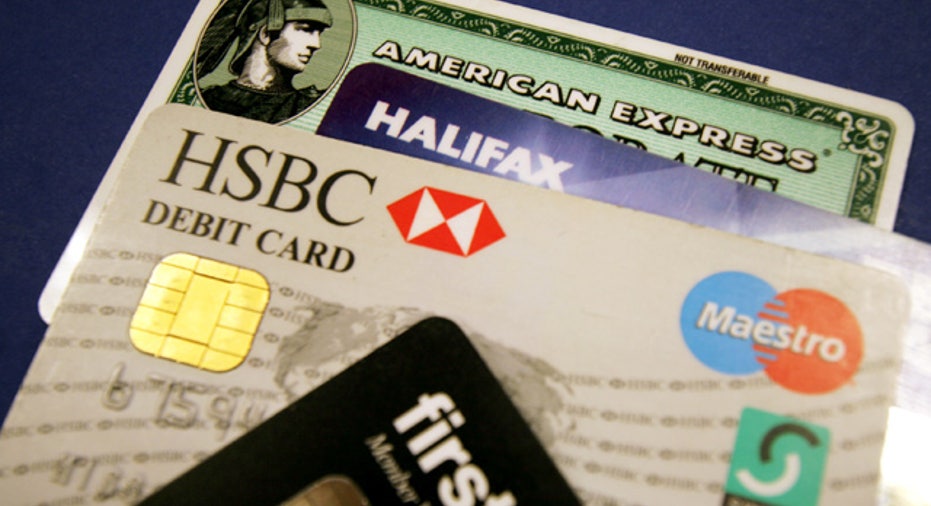Banking and Your Credit Score

Most banking activities aren't reported to credit bureaus, but a few can definitely knock some points off your credit score.
It's a common misconception that every piece of financial information is logged into a consumer's credit report. However, the truth is that deposit accounts at banks, credit unions and stock brokerages are largely excluded from credit reporting, credit reports and credit scores.
"A credit report is used by lenders to assess risk, but that's specific to credit and debt," says Rod Griffin, director of public education at Experian, a credit bureau in Costa Mesa, Calif. "There's no clear relationship between how a person manages a checking account that would allow a lender to predict whether they'd manage a credit account well."
Banking activities that have no impact on a consumer's credit report or score include making a deposit or withdrawal, writing a check, closing an account or even having multiple bank accounts.
Even so, here are some instances when banking intersects with credit reporting:
Opening a new account. Some banks and credit unions look at a customer's credit report when he or she wants to open a new bank account. This look-see, if it happens, typically shows up as a "hard inquiry," according to Barry Paperno, consumer operations manager at MyFICO.com in San Rafael, Calif.
A "hard" inquiry refers to a consumer-initiated application for more credit. A hard inquiry may affect a consumer's credit score because it indicates the consumer intends to incur more debt and thus is more likely to default on some debt in the future.
For the FICO score, a hard inquiry can count for between zero to five points against the score. That's a small effect on most people's financial lives, but it could be material if someone opens many accounts in a short time frame and is very close to the line of qualifying (or not qualifying) for a home, auto or student loan.
Opting into overdraft protection. A new line of credit attached to a checking account for overdraft purposes also could trigger a credit report inquiry and result in credit reporting by some banks and credit unions.
"Some banks will open an overdraft account that on your credit report is reported as a line of credit and as a revolving account, which the FICO score looks at in a similar way to a credit card," Paperno says.
Not all overdraft accounts are reported to the credit bureaus, but those that are can affect the consumer's credit score, especially if the payments aren't made on time or the bank account is closed for cause.
"If the bank submits the overdraft amount to a collection agency, then you owe a debt to that bank and that could be reported as a collection account on your credit report," Griffin says.
If reported, a credit line also could affect a credit score as a component of utilization. The FICO score doesn't consider access to more credit "as a negative per se," Paperno says. Rather, the effect depends on whether the total amount of credit is utilized responsibly or maxed out.
Bouncing a check. Writing a check without sufficient funds typically wouldn't be a credit-reporting event. However, if the bank or credit union sends a bad check to a collection agency or tries to recoup the funds through an internal collections process, the account could end up on the consumer's credit report. A collection account is "a serious negative" in terms of the score, Paperno says.
If the bank obtained a court judgment against the consumer over the unpaid amount, that could land on the credit report, too.
Getting a debit card. New rules that change how banks handle debit cards and overdrafts also may prompt some banks to take a greater interest in credit reports, according to Nessa Feddis, vice president and senior counsel at the American Bankers Association in Washington, D.C. Since banks may not be able to charge the customer a fee if a debit card transaction results in an overdraft, they may be more cautious about handing out debit cards without prior credit checks. Feddis says this scenario is rare but might be on the increase.
"There is a risk, so they're going to look and see," Feddis says.
Applying for credit with a "thin" file. An important exception to the general rule that most basic banking information isn't reported to credit bureaus is the Pay Rent, Build Credit, or PRBC, credit reporting agency, which helps people who haven't obtained or utilized much credit establish a history through nontraditional means such as rent or utility payments. In this program, some banking information might be used to help a consumer document his or her financial position.



















